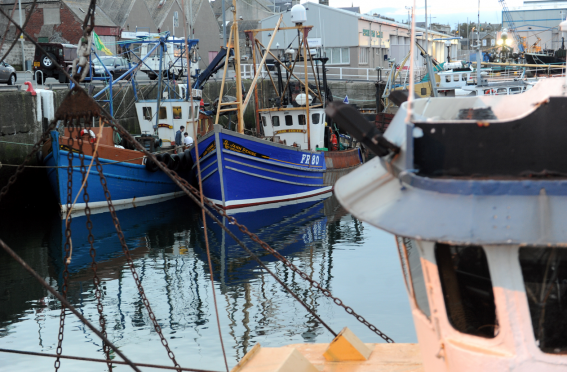Moray’s fishing communities came close to sinking the region’s campain to remain in the European Union on Thursday.
Residents in Buckie, Lossiemouth, Burghead, Hopeman and Cullen helped secure the area’s Leave group 49.9% of the popular vote.
The area’s Remain effort trimuphed by just 122 votes, with 24,114 ballots to Leave’s 23,992 – the closest margin of victory recorded in the UK. (NOTE: THIS IS SURELY LIKELY TO STAY THE CASE??)
Prior to Thursday’s referendum, Moray had been tipped as the Scottish region most likely to back cutting ties with Brussels.
As the night wore on, the prospect of the area breaking from the trend established across the country grew increasingly likely.
Members of Moray’s SNP group, which had urged residents to register a Remain vote, were visibly relieved when the outcome was declared.
Paul Briggs, who led the region’s anti-EU drive, said that some polling stations in Lossiemouth showed a two to one swing in favour of Leave.
Mr Briggs said that the result “made a massive statement” and emphasised the need for the European Union to revise certain policies.
He said: “Our elected representatives need to look at this and take heed.
“Things obviously need to improve for people in Moray’s fishing communities, they are clearly unhappy with the UK’s position within the EU.”
Moray MSP Richard Lochhead acknowledged that the EU’s common fisheries policy had caused unrest among Moray residents who make their living at sea, and cited it as a prime cause for the close result.
The policy places a ban on discard and includes “landing” rules, whereby catches have to be kept on board, landed and counted against fishing quotas.
It has been attacked by fishermen, who say the scheme has devastated their trade by forcing them to dump billions of dead fish.
Mr Briggs claimed that Moray’s military community also played a large role in ensuring the outcome was so finely balanced.
He said: “Forces families at RAF Lossiemouth and the Kinloss Barracks just want out of the EU.
“We visited the RAF base in the week, and that was definitely the feeling.
“They don’t like the idea of other countries having any influence on the UK’s armed forces.
“They voted out by a big margin at some of the stations.”
By
Ben Hendry
